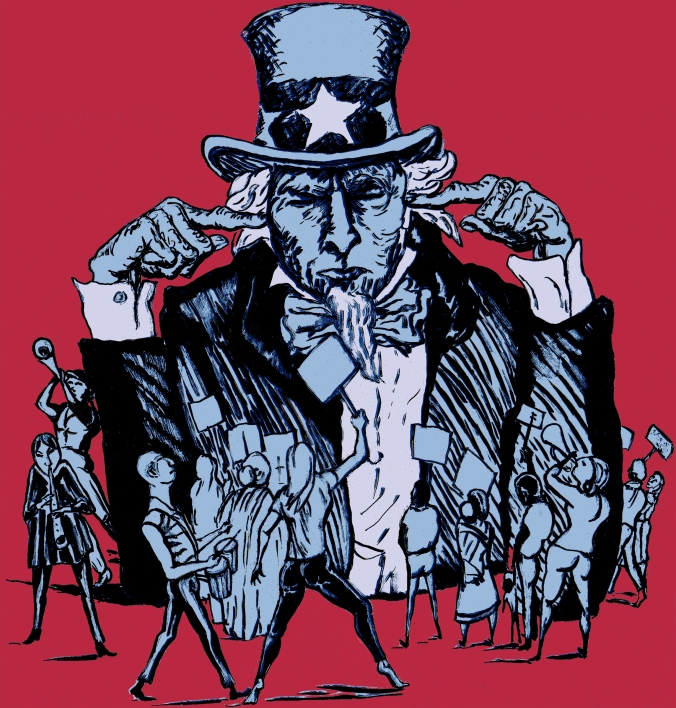The fifth commentary, and sixth post, on Nick Srnicek and Alex Williams’ Inventing the Future, from DoT’s own Joe Hoover. A reply from Nick and Alex will follow.
Inventing the Future begins with a lament.
Where did the future go? For most of the twentieth century, the future held sway over our dreams. On the horizons of the political left a vast assortment of emancipatory visions gathered, often springing from the conjunction of popular political power and the liberating potential of technology.
The authors resent that they have been denied a future with more promise than the present. They mourn the absence of the object of their desire, the impossibility of its fulfilment, the lives to be lived in these lost leftist utopias. This seems to be a widely felt disappointment, if we are to judge by how often the complaint has been made of late. Disappointment leads to diffuse anger, directed at the status quo on the “Left”, its lack of vision. At the root of this discontent is anger at the world itself, for all of the ways it impedes us, frustrates our hopes and gives no comfort to our dreams – it is a world in need of re-making. I do not want to suggest that because the book’s narrative is motivated by such feeling that it can be reduced to an outburst against the vagaries of existence, the work is too focused and the problem it addresses too serious for such crude criticism. Yet, this fundamental emotional resentment colours the project in an important way.

Orpheus plays his lament
The lament shapes the inquiry itself. We are wounded by the loss of our desire – a future flush with possibility – and we are angry at capitalism for stealing our future. Obviously the detail is more sophisticated than this curt summary, but a stark statement of the underlining logic reveals the essential narrative. The problem of contemporary Left politics is not the desire for a universal utopian future but rather that this future has been lost, which runs counter to important criticisms of progressive leftism (a point taken up by Aggie Hirst and Tom Houseman). Therefore, the authors’ task is to remind us why we desire the future, then to consider where to look for a new one and how to seek after it. Inventing the Future is a quest to find what was lost, so we can become whole in our desires. We may set out on such a quest with great optimism but we still carry a worrisome anger with us.
There are a great many barbarities in our world attributable, at least in part, to “capitalism” but it is not a villain stealing away with our ladylove (the difficulties of determining what capitalism is are taken up later). Our lost future is not the exceptional crime of some neoliberal conspiracy. Yes, I know the book does not say anything quite so crude. Nonetheless, the narrative structure is driven by a conflict that finds its resolution with the us (the protagonist) achieving wholeness in a future fulfilment of our desire. The authors make the caveat that contestation will not end in this postcapitalist future, but this future still holds out the promise that the conflicts of today will melt away. The world is always messy, unfinished, stubborn, cruel, confused, and, I posit, resistant to the kind of breaks with past ways of being that are suggested here (Sophie Lewis and David Bell look at the temporalities involved in greater detail). If we lament that, we risk resentment against the world itself, against human existence and against flesh and blood people who move slowly and impede our dreams. Love of the future sits dangerously close to hatred of the present – which is not to say we should have no love of the future, but rather that we ought to be wary of too much of it.
Continue reading →
 Earlier this year I visited
Earlier this year I visited 




